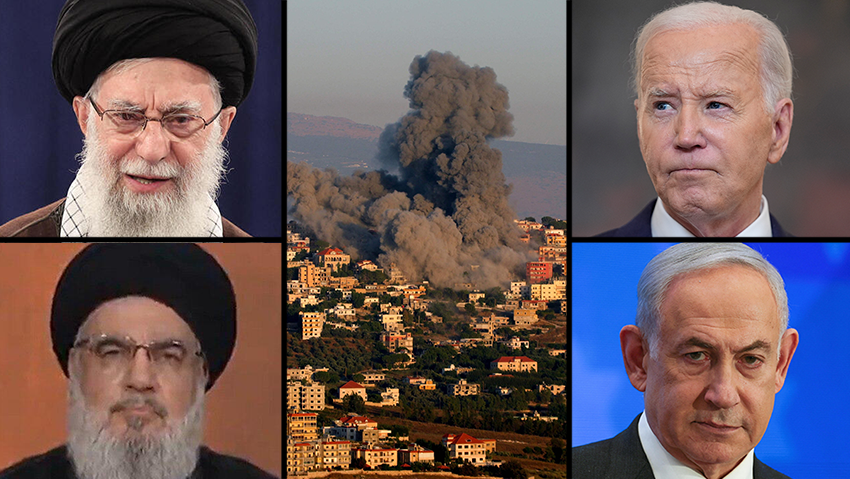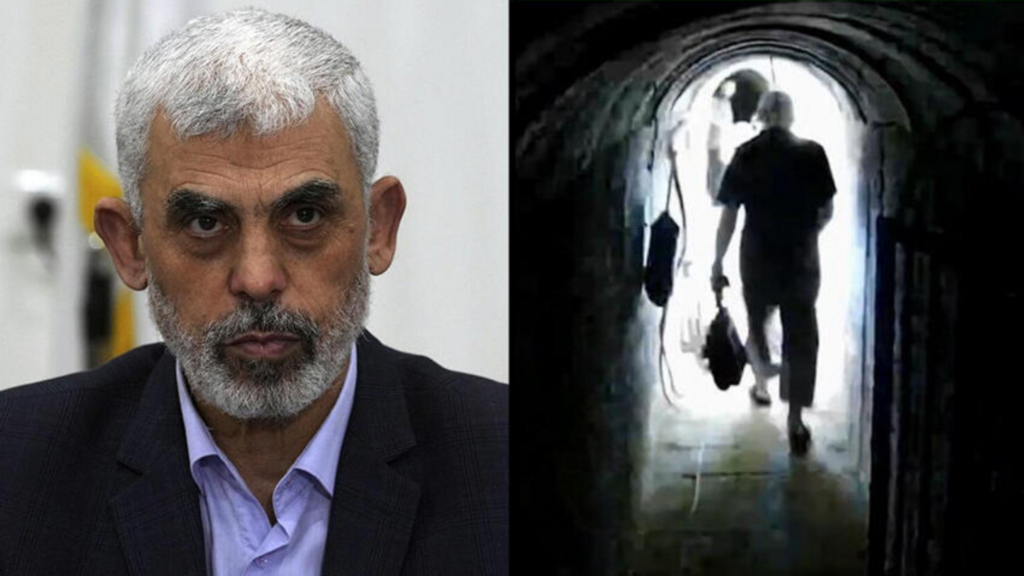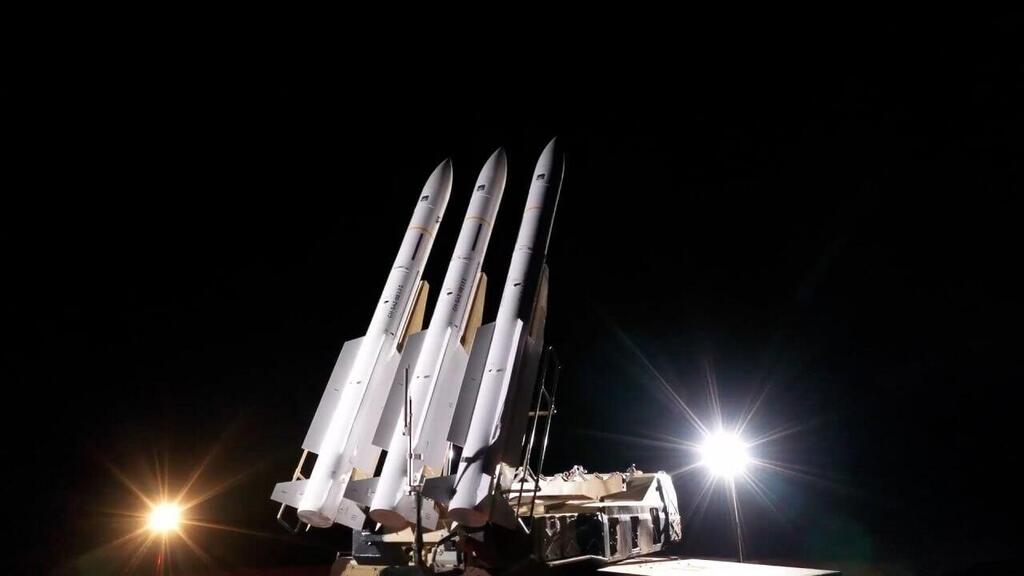Israel has yet to decide whether and when to initiate military action on the northern border. The prime minister was still giving a chance for a diplomatic resolution to the conflict in the north. If one is reached, it could potentially prevent the IDF’s need to engage in war against Hezbollah and Lebanon.
Israeli officials say a decisive victory against Hamas in Gaza could come within a month to six weeks, possibly making a full-blown war in Lebanon unnecessary. They believe that once Hezbollah leader Hassan Nasrallah sees the IDF's achievements and Gaza’s massive destruction, he and his Iranian patrons will agree to a diplomatic resolution.
4 View gallery


Ali Khamenei, Hassan Nasrallah, strike in Lebanon, Joe Biden, Benjamin Netanyahu
(Photo: REUTERS/Ronen Zvulun, Alex Kent / GETTY IMAGES, Rabih DAHER / AFP, Reuters)
This, of course, depends on whether the IDF can, within six weeks at most, dismantle Hamas’ military power and civilian governance by establishing enclaves of non-Hamas local governance in the northern Gaza Strip.
Another consideration guiding Netanyahu is the belief that Hamas leader Yahya Sinwar isn’t currently interested in a hostage deal and is still hoping that the Americans and the UN will force Israel to stop the war in Gaza and withdraw from the Strip without all of the hostages being freed, which he considers his safety net for survival.
In such a situation, Israel's decision regarding the northern front would be delayed by some weeks. Meanwhile, according to a CNN report published on Saturday, the U.S. has officially informed Israel it would support a military campaign against Hezbollah in Lebanon should attacks against the country continue.
The message was conveyed in discussions held over the past two days in Washington between senior American officials, including National Security Advisor Jake Sullivan, Secretary of State Antony Blinken, U.S. President Joe Biden’s envoy to the Middle East Brett McGurk, and Israel's Strategic Affairs Minister Ron Dermer and National Security Advisor Tzachi Hanegbi.
4 View gallery


Yahya Sinwar, Sinwar escaping via Hamas tunnel in Gaza
(Photo: AP, Photo: IDF Spokesperson's Unit)
The talks also dealt with Iran, humanitarian aid to Gaza and Iran's advances in its nuclear program. Both the Americans and their Israeli guests did not disclose details about the talks beyond the assured American support. This could be seen as a message both to Tehran and to Nasrallah in Lebanon that Washington is not afraid of a regional war if the situation on the Israel-Lebanon border continues to escalate.
The administration is determined to support Israel not only with continued military supplies but also in defending against ballistic missiles, cruise missiles and drone attacks that Hezbollah, Iran and the regional Iranian proxies might launch toward Israel in case of war.
American officials also made it clear that the U.S. will not put American boots on the ground, according to the reporting on CNN.
This means everything short of troops is included in the U.S. aid Israel would receive, as was the case when a regional alliance headed by the U.S. helped fend off Iran’s munitions from reaching Israel in April.
The American statement appears to contradict declarations made by senior U.S. officials indicating the U.S. has made it clear to Israel that it doesn’t want a regional war to start because of an IDF operation in Lebanon.
Nasrallah's threats to Cyprus, for example, were not really meant for Nicosia. They were directed at the Americans and the EU as warnings that they could be involved should a regional war break out, and were likely coordinated with Iran.
U.S. envoy Amos Hochstein's efforts in Lebanon have so far failed because Nasrallah was entrenched in his position that Israel must end its war in Gaza before negotiations to resolve the conflict on the Israel-Lebanon border, could begin.
Now, Nasrallah and the Iranians must reassess their course of action, knowing their further aggression on the northern border could lead them to a regional war against an Israel-U.S. coalition.
Senior American officials recently expressed concern that Israel will not be able to defend against Hezbollah’s vast arsenal of precision weapons, in case of war. Such warnings to Israel, intended to deter any incursion into Lebanon, would now likely lessen after Washington has made it clear to Hezbollah and Iran that it will join Israel's fight if required.
It’s hard to overstate the importance of such a message, which likely stems from political considerations as well. The video Netanyahu posted last week, accusing the Biden administration of delaying arms shipments to Israel, apparently had an impact on Biden’s electoral prospects.




